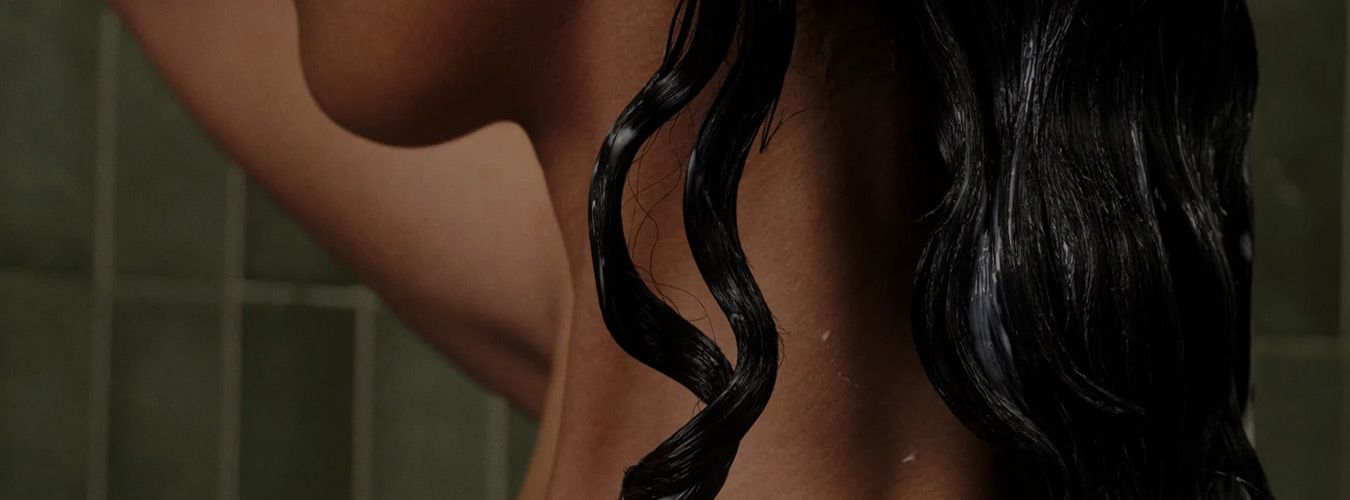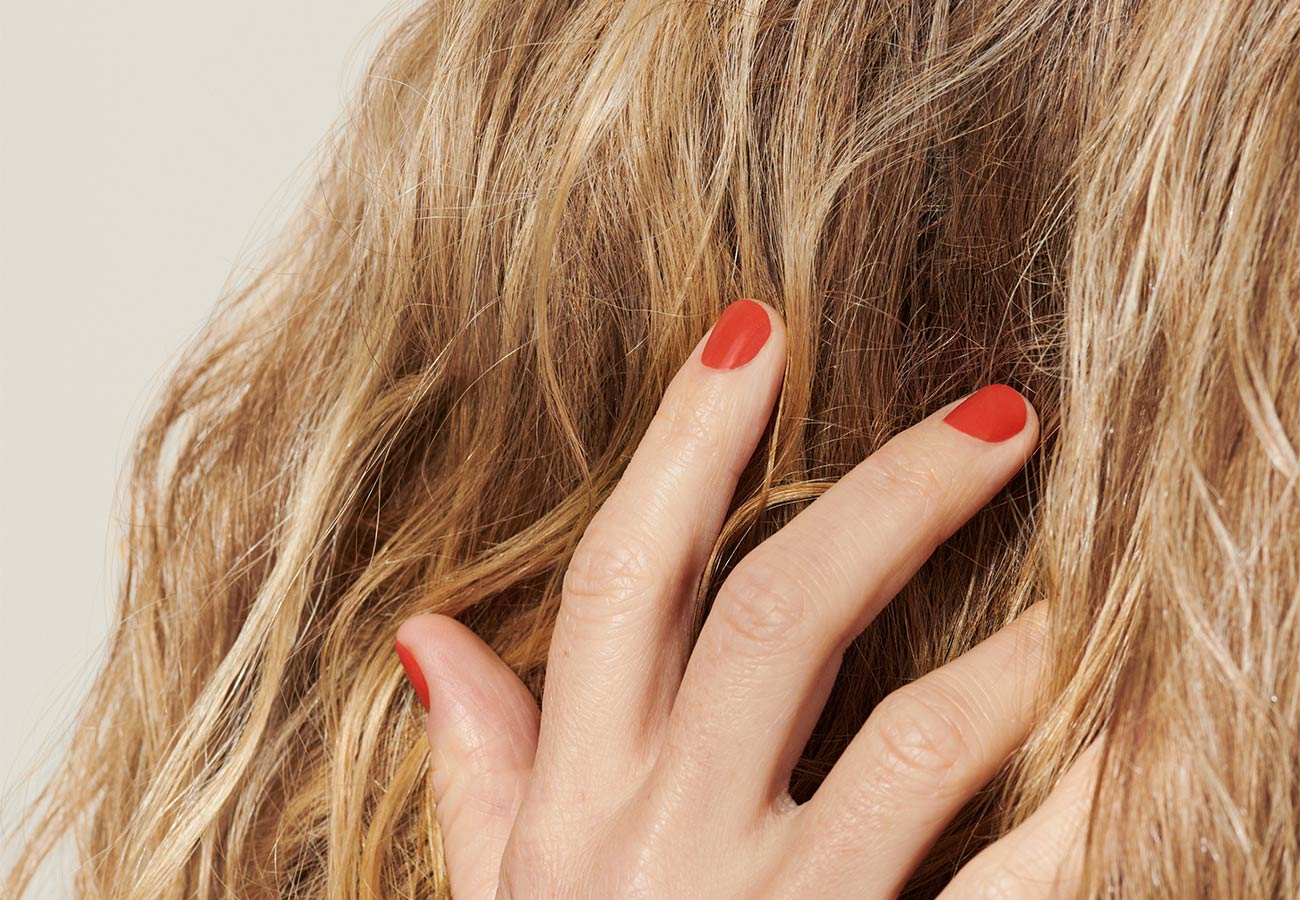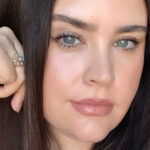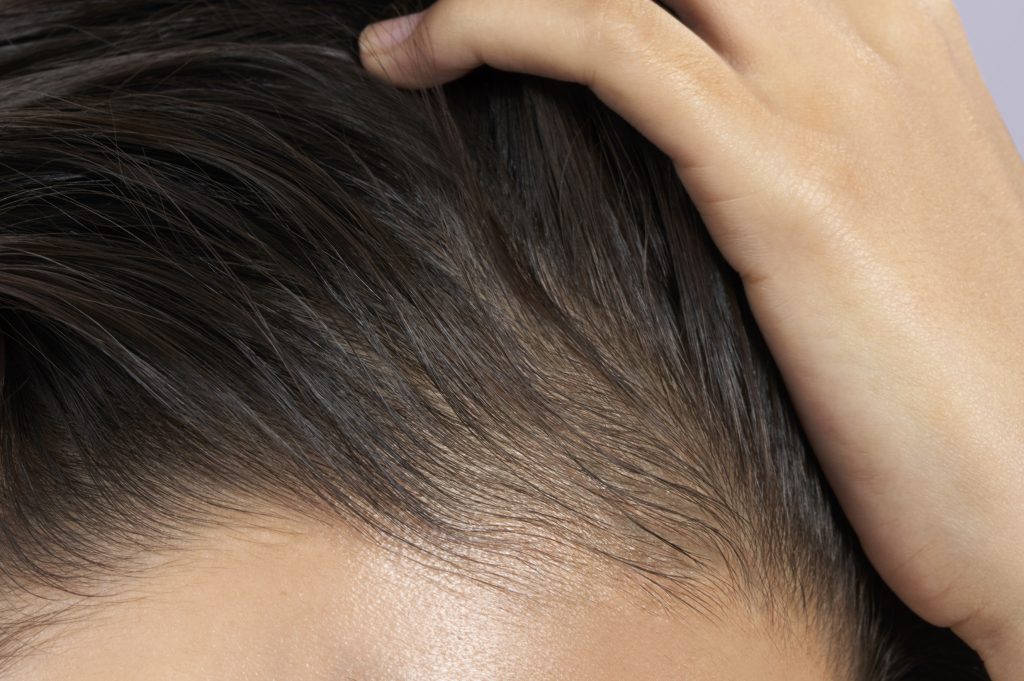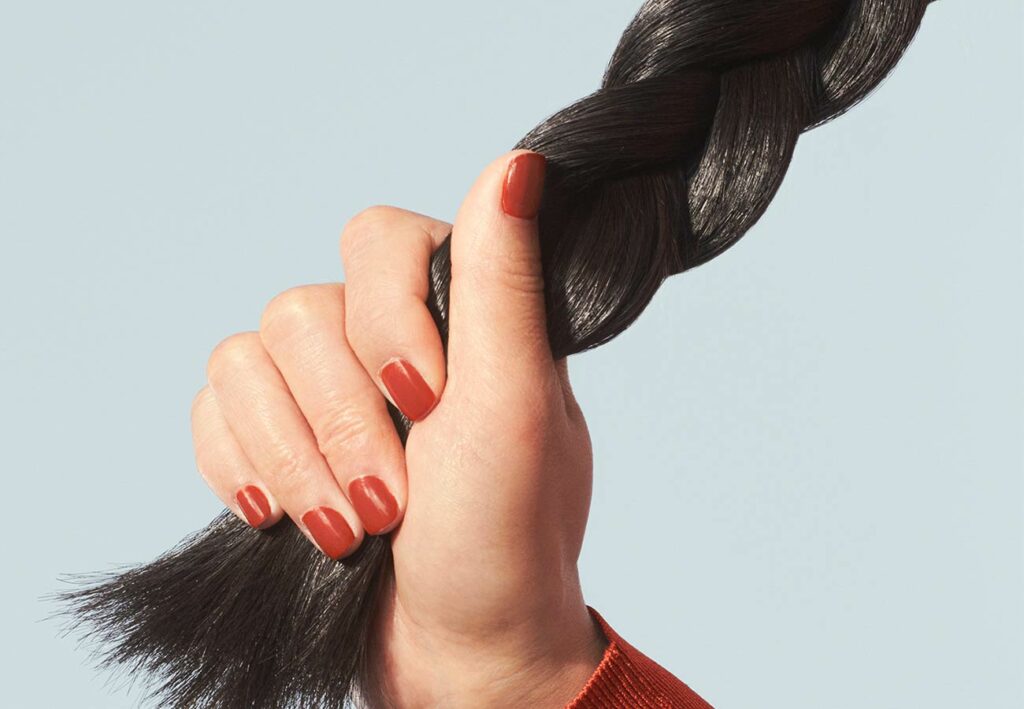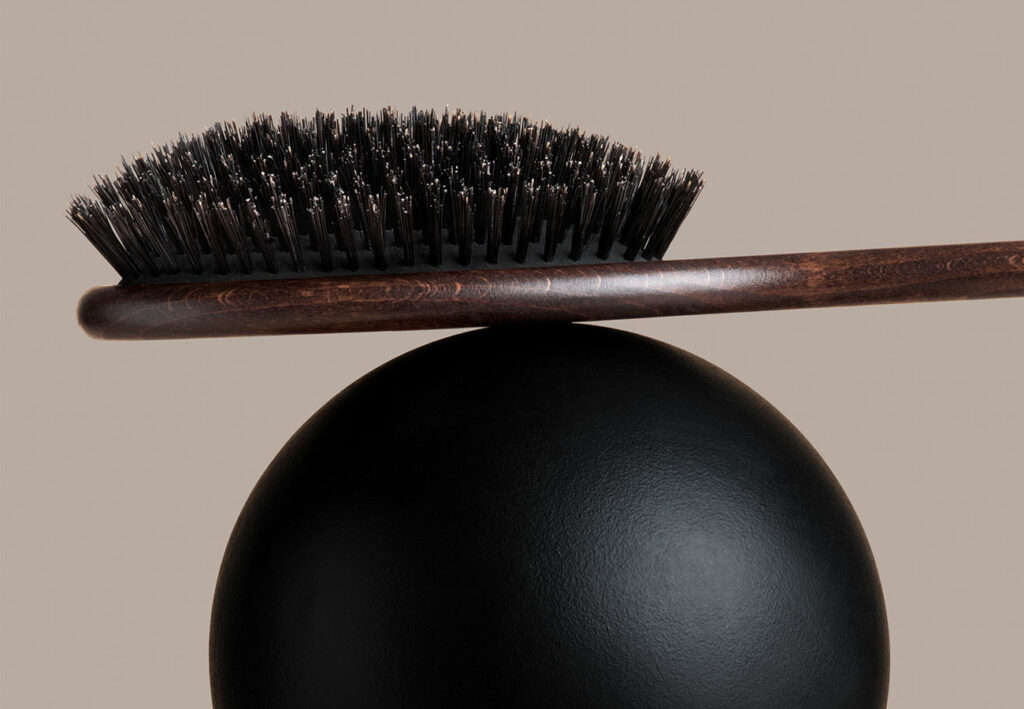Normal hair shedding vs. excessive hair shedding
Even when our systems are running perfectly, the average person sheds 50 to 100 hairs a day, according to the American Academy of Dermatology (ADA). Hair shedding that exceeds that average is called telogen effluvium, a condition that typically resolves itself naturally. “Excessive hair shedding comes from things like stress, giving birth, or losing over 20 pounds,” explains Faith Huffnagle, Director of Education at Prose and verteran hairstylist. “The causes of excessive hair shedding are temporary and you have to give yourself time and grace to let your hair shed and come back.” The ADA also lists surgical procedures, going off birth control, and recovering from an illness (even a high fever) as additional telogen effluvium causes. Usually hair shedding happens two to three months after a stressful event or health trigger.
How long does it take to recover from excessive hair shedding? The ADA notes that most people see a return to normal fullness within six to nine months—providing the stressor or health trigger doesn’t persist, as long term stress and poor health can cause ongoing hair shedding. To strengthen your hair, Faith recommends hair care products with ingredients like maca and biotin, which can both be found in Prose formulations.
The difference between hair shedding and hair loss
Signs you’re experiencing hair loss
Unlike hair shedding, hair loss, or anagen effluvium, may not resolve itself naturally. Causes of hair loss according to the ADA are hereditary hair loss, harsh drugs and treatments like chemotherapy, immune system issues, and traumatic hair loss from hair pulling or extremely tight hairstyles. These causes actually stop the hair from growing, resulting in balding or alopecia, and the hair can’t try to grow back until the cause stops. With hereditary hair loss, we can affect how soon our genetic predisposition kicks in, as an unhealthy lifestyle can trigger hair loss sooner than it would naturally happen. A board-certified dermatologist can help identify hair loss and its causes, as well as provide treatment options.
How to identify hair breakage
It’s nice when things are simple, and identifying hair breakage is oh-so-easy: “Take a look at a fallen strand of hair,” says Faith, “shedding will have a bulb on the end of the hair, whereas breakage will not.” That little bulb indicates that the hair came directly out of your scalp, a sure sign of shedding, versus a long piece of broken hair. You may see broken hair all over your sink or floor after brushing your hairs. “Breakage happens from really tight elastic hair ties or rubber bands, frying your hair with heat, chemical exposure, and brushing too harshly or ripping through tangles,” she says.
Putting Prose shampoo and conditioner to the test
Did you know using using Prose shampoo and conditioner reduces breakage up to 73 percent—that’s up to 1,500 broken fibers saved per month!*
Here are Faith’s top tips to avoid hair breakage
- Brush hair with a wide-tooth comb or boar bristle brush
- Detangle hair when it’s mildly damp
- Avoid too-tight hairstyles and abrasive hair ties
- Use temperature controlled heat tools and don’t go over 360 degrees
- Avoid excessive bleaching, perms, relaxers, and chemical treatments
Always made to order. Never made to waste.
Exclusive Trial Offer Get 60% Off + Free Gift
